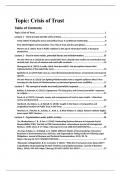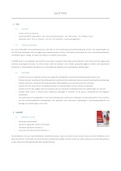Samenvatting
Summary - Topic The Crisis of Trust: Organizations under public scrutiny. (Y)
- Vak
- Instelling
This document contains summaries of readings, lectures, ideas and examples of my own and key words/theories. Using these notes I got a 9.0.
[Meer zien]




